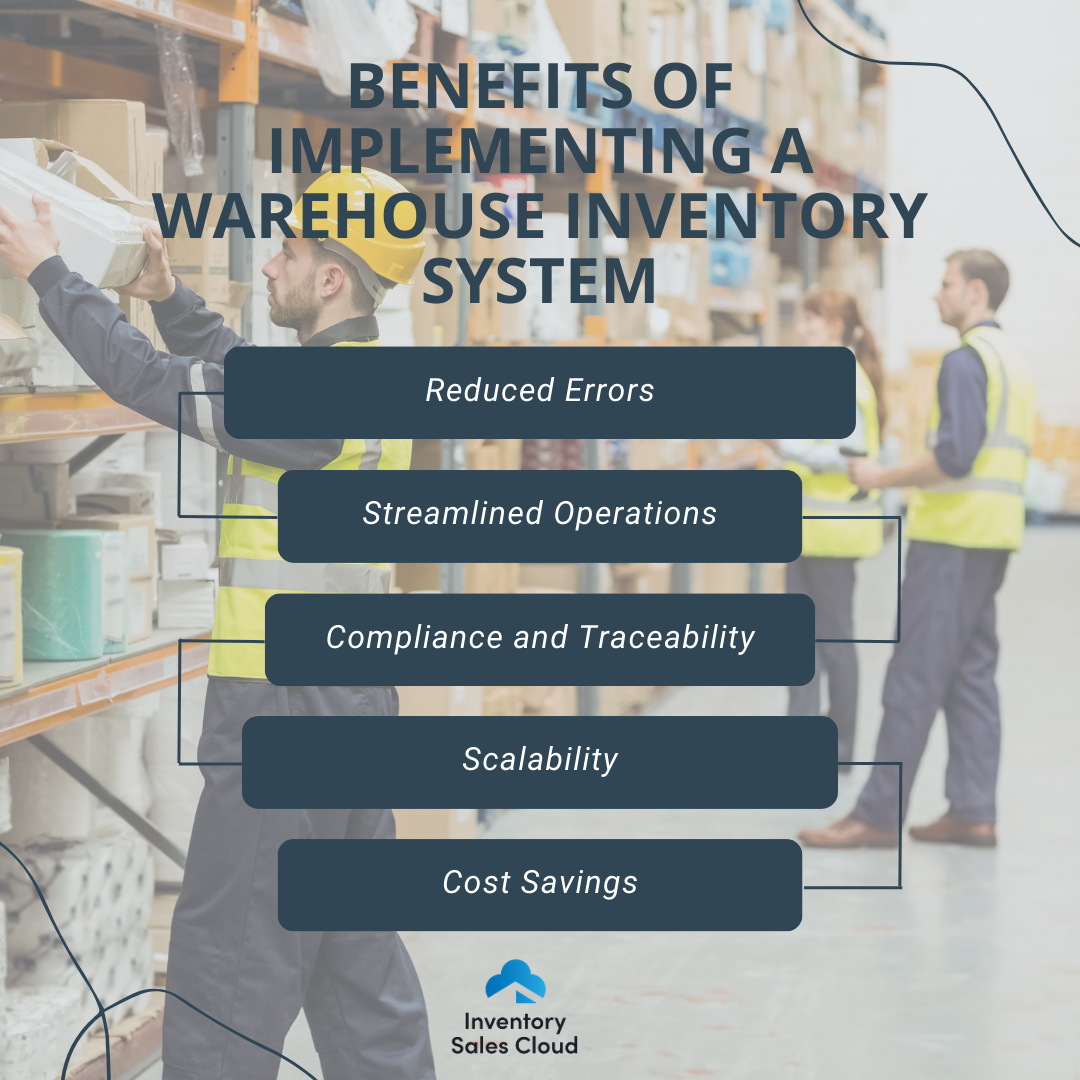5 BENEFITS OF IMPLEMENTING A WAREHOUSE INVENTORY SYSTEM

- Reduced Errors
A robust warehouse inventory system minimizes human errors by automating processes such as inventory tracking, order picking, and stock updates. Real-time data ensures accurate stock levels, reducing issues like overstocking or stockouts and improving order fulfillment accuracy. - Streamlined Operations
By integrating all aspects of inventory management, a warehouse system optimizes workflows. It automates repetitive tasks like barcode scanning, stock reconciliation, and order processing, which improves efficiency and reduces the time spent on manual operations. - Compliance and Traceability
Modern inventory systems help businesses stay compliant with industry regulations by providing complete traceability of products. Features like lot tracking, serial number tracking, and IMEI tracking (for electronics) ensure that every item can be traced back to its origin, supporting warranty claims and recalls when necessary. - Scalability
As your business grows, a warehouse inventory system can scale with you. It supports higher order volumes, multiple warehouse locations, and complex supply chain networks. This ensures your operations remain efficient and effective, even as demand increases. - Cost Savings
Implementing a warehouse inventory system significantly reduces costs in several ways:- Labor Costs: Automation reduces the need for manual labor, allowing employees to focus on higher-value tasks.
- Storage Costs: Accurate inventory tracking prevents overstocking, ensuring optimal use of warehouse space.
- Loss Prevention: Real-time monitoring minimizes theft, misplacement, and spoilage of goods.
- Operational Efficiency: Faster order processing and reduced errors lead to improved customer satisfaction, which reduces costly returns and disputes.
By investing in a warehouse inventory system, businesses can achieve long-term savings while enhancing operational efficiency and customer satisfaction.